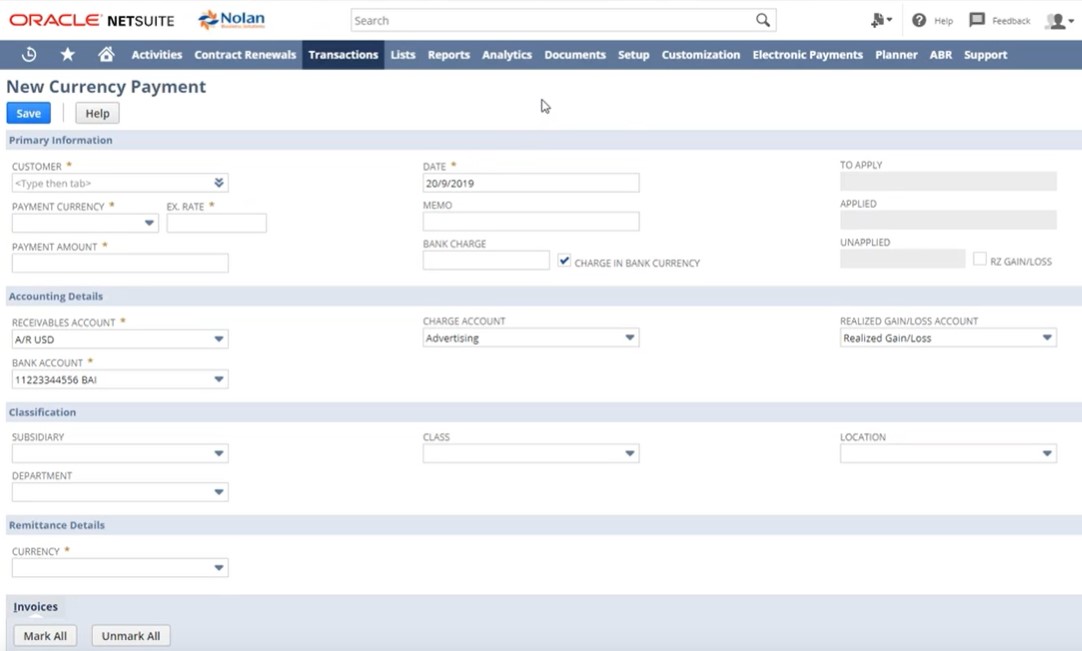Bringing your accounting processes together
When a customer payment is made in a foreign currency, there may be charges associated with the payment and the actual amount received in the bank account may be different than the amount paid by the customer or invoice amount. These charges may be expressed in local currency. This makes it more difficult to record the payment and charges correctly within NetSuite, requiring multiple transactions or conversions of charge amounts into foreign currency equivalents.

Our solution
Our Accept Currency Payments is an innovative product, which can process invoice payments in various currencies as well as incorporating the cost difference from bank charges.
Benefits
-
Three currency scenario
Works if you are operating in currency A, invoice in currency B and are paid in currency C
-
Global reach
Available in a number of currencies including Euro, US Dollar, Canadian Dollar and Sterling
-
Simplify your processes
Reduces the number of manual processes
-
Save your Finance Team time
Eliminates the need for manually raising journals and linking journals back when auditing
-
Flexible
Bank charges can be applied to either local currency or invoiced currency
-
Currency variations
Post gains and losses to General Ledger code taking into consideration currency variations
Ready to chat?
We are an accredited NetSuite Solution Provider and NetSuite Partner. Our expert team are here and ready to help you, so send us a message or give us a call.